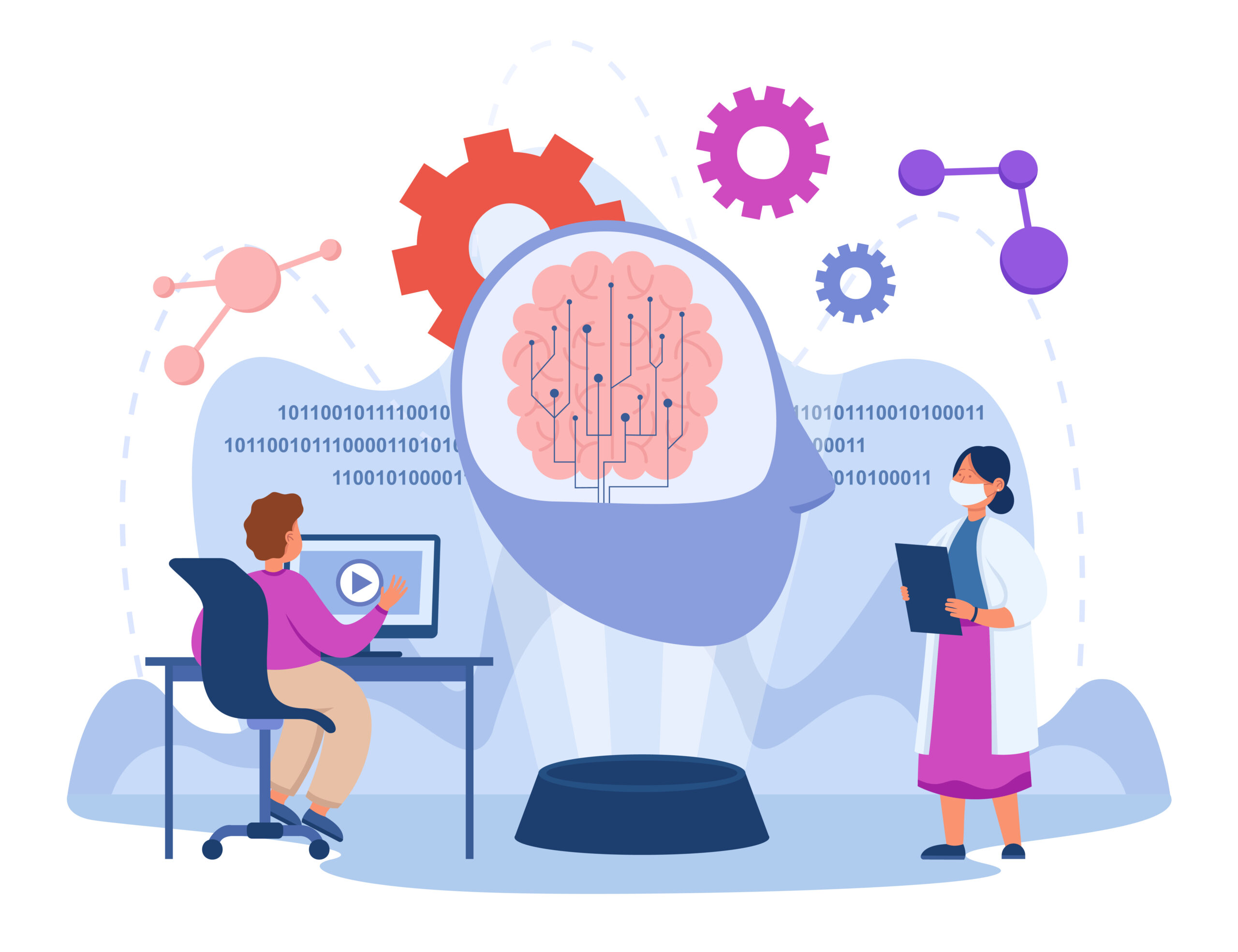In the fast-paced world of retail, AI is revolutionizing the way businesses operate and engage with consumers. To gain insights into the intersection of AI and sustainability, we recently spoke with Mike Robinson, a professional with over 25 years of experience in digital retail. Mike’s journey in the retail industry began by chance, but his passion for the field propelled him to take on key operational roles at prominent brands like The Gap and Macy’s, where he played a crucial role in both building out core and enhanced capabilities, and driving digital growth.
Driven by a commitment to both productivity and sustainability, Mike is a founding member The Eighth Notch, a venture focused on transforming the e-commerce delivery landscape. The company aims to prioritize intelligence and environmental friendliness in product fulfilment, bringing about a positive change in the sector. Leveraging their collective expertise in logistics, customer experience, behavior and omnichannel strategies, the T8N team envisions a more sustainable future for retail.
Efficient Deliveries for a Greener Future
Brace yourself for a game-changing concept: coordinated deliveries. Mike highlighted the prevalent mindset of retailers, driven by the need for speed and influenced by the Amazon effect of fast and free shipping. However, this frenzied approach results in uncoordinated shipments and a constant flood of individual packages bombarding consumers.
The Eighth Notch has cracked the code by introducing a paradigm shift. By meticulously analyzing transit times and strategically timing when a package ships, they orchestrate a synchronized symphony of deliveries. Imagine multiple packages hitching a ride in the same delivery truck, eliminating unnecessary stops and reducing carbon emissions.
We're changing the nature of when things get shipped to change the downstream impact of when they get delivered."
This coordinated approach not only promotes sustainability but also brings operational savings and an enhanced ecommerce experience for all.
The last mile: A crucial piece of the sustainability puzzle
Moreover, according to Mike Robinson, while many retailers have made commendable strides in adopting eco-friendly measures, there’s a crucial piece of the puzzle that has been largely overlooked—the last leg of the journey, the delivery process itself. “When it comes to meeting the demand for sustainability from consumers, retailers have been focused on the obvious areas,” Robinson shared.
They're sourcing sustainable products, embracing alternative energies like solar and wind, and making ethical choices in their physical plants. But what they've missed is the untapped potential lying within their delivery partnerships. It's that final piece in the puzzle, the last mile, where the real opportunity for innovation and impact resides."
However efforts have been made to reduce packaging waste, there hasn’t been sufficient attention given to optimizing the number of times a delivery takes place. This realization led the T8N team to a breakthrough solution that centers around using time strategically.
AI and optimized deliveries
Robinson believes that T8N’s AI capabilities are currently in the early stage and constantly improving/learning, and hold great promise in improving predictive capabilities – especially around each and every delivery address in the US. He explained, “We’re becoming much more predictive as we start to understand the behavior of the address that things are going to. The more we learn about a specific address, the better we can assist in scheduling and predict when deliveries should occur”.
By understanding consumer behavior patterns, AI can assist in scheduling deliveries more accurately, leading to enhanced operational efficiency. Major players like FedEx and UPS can benefit significantly from AI-driven solutions, particularly in route scheduling and labor management during peak seasons. Leveraging AI, carriers can smooth out the impact of demand spikes, ensuring seamless operations and delivering exceptional customer experiences.
AI: A game changer for personalization and sustainable consumption
Additionally, Robinson envisions a future where AI can help consumers make informed choices by providing bespoke shopping lists and personalized recommendations tailored to specific activities and circumstances. Moreover, he emphasized that by leveraging AI, retailers can manufacture products that are uniquely designed for each individual’s preferences, body type, and personal choices. This approach not only ensures that customers receive items perfectly suited to their needs but also minimizes waste by discouraging excessive purchasing, returns, and disposal of unwanted goods.
Finding the right solution and building consumer trust
Mike highlights the challenges associated with AI as a silver bullet solution. His past experience has shown that:
Sometimes, you need six months for the model to train itself and learn anything. And after months have passed, well, the model still hasn't learned anything, because your data is so complex or the variables continue to change.”
He acknowledges that there is a misconception that AI could solve any problem, but in reality, it often requires a significant amount of time and complex data to learn effectively. He emphasized the importance of finding the right application for AI, one that enhances human capabilities rather than replacing them entirely. From a consumer perspective, adoption and trust are crucial factors. Mike stressed the value of AI solutions that seamlessly integrate into our lives without us even realizing it, while still allowing individual customization based on personal preferences and needs. He states “The best AI solutions are the ones that I don’t even realize are guiding me, but still allow for customization based on my unique preferences and needs.”
The future of e-commerce
The future of ecommerce holds exciting prospects, and according to Mike Robinson, the search for the perfect shopping experience is a top priority. Additionally, with advancements in generative AI using facial avatars, personalized product recommendations based on different personas are now within reach. This innovative approach utilizes the wealth of information we willingly provide and has the potential to transform how we discover and inspire our shopping desires. Furthermore, Mike envisions a rising trend in socially conscious shopping, where consumers actively seek out brands that align with their values and prioritize sustainability. In this evolving landscape, trust and responsible choices will be key factors in capturing the hearts of conscientious customers – who will not be shy about voting with their wallet.
Interview Insights
In today’s rapidly evolving ecommerce landscape, staying ahead of the competition requires not only understanding customer needs but also delivering exceptional experiences. That’s where the immense potential of artificial intelligence (AI) comes into play.
Optimization Delivery Challenge: Overcoming the Hurdles
Efficient delivery management is a crucial aspect of running a successful ecommerce business. The optimization delivery challenge encompasses various factors such as understanding the behavior of addresses, scheduling deliveries effectively, and predicting the ideal timing for shipments:
- Address Behavior Understanding: AI algorithms can analyze vast amounts of data to identify patterns and trends related to customer addresses. By leveraging this capability, ecommerce businesses can gain insights into address-specific challenges like delivery delays, incorrect information, or regions prone to issues. This knowledge empowers you to proactively address these challenges, ensuring smoother and more reliable deliveries.
- Intelligent Scheduling: AI-powered systems can optimize delivery routes and schedules by considering a multitude of factors, such as traffic conditions, distance, and delivery time preferences. These systems can dynamically adjust routes in real-time, ensuring efficient and timely deliveries while reducing fuel consumption and operational costs.
- Delivery Prediction: By leveraging machine learning algorithms, AI can analyze historical data and consider contextual factors like weather conditions or events that may affect delivery times. This enables ecommerce businesses to make accurate predictions and provide customers with reliable estimated delivery windows. Increased transparency regarding delivery times can enhance customer satisfaction and trust.

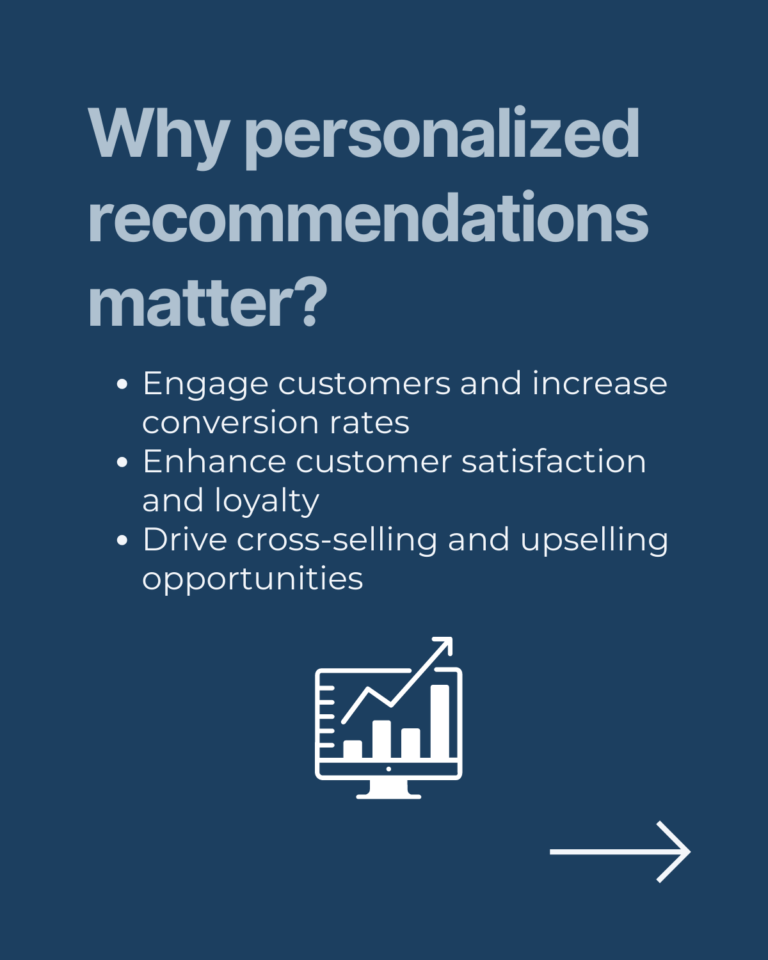
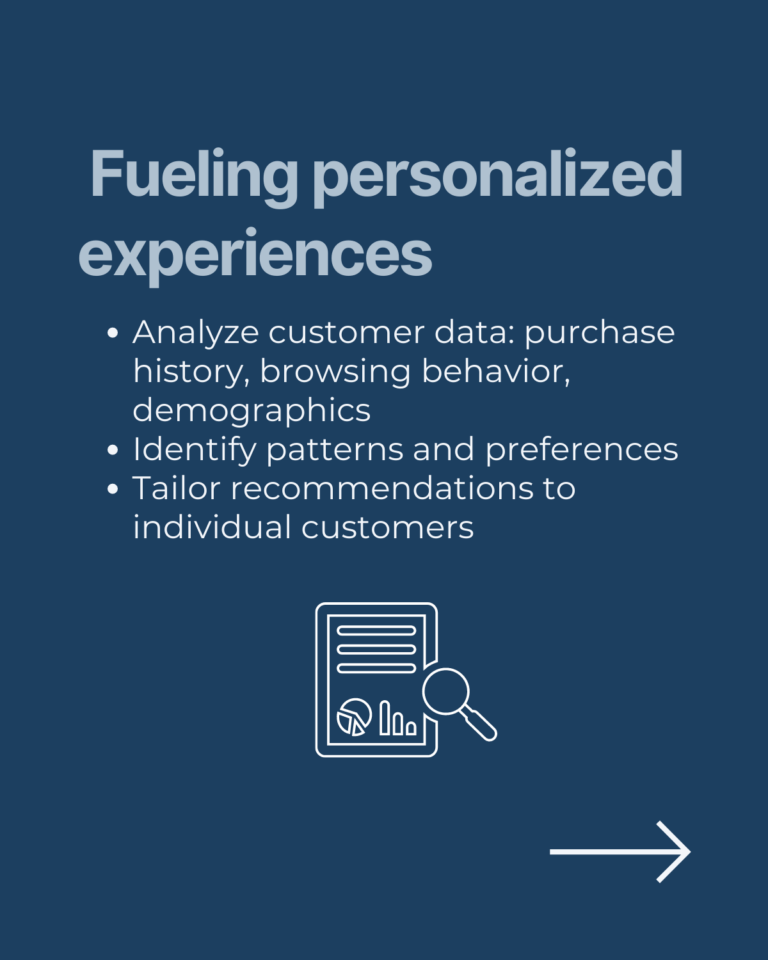
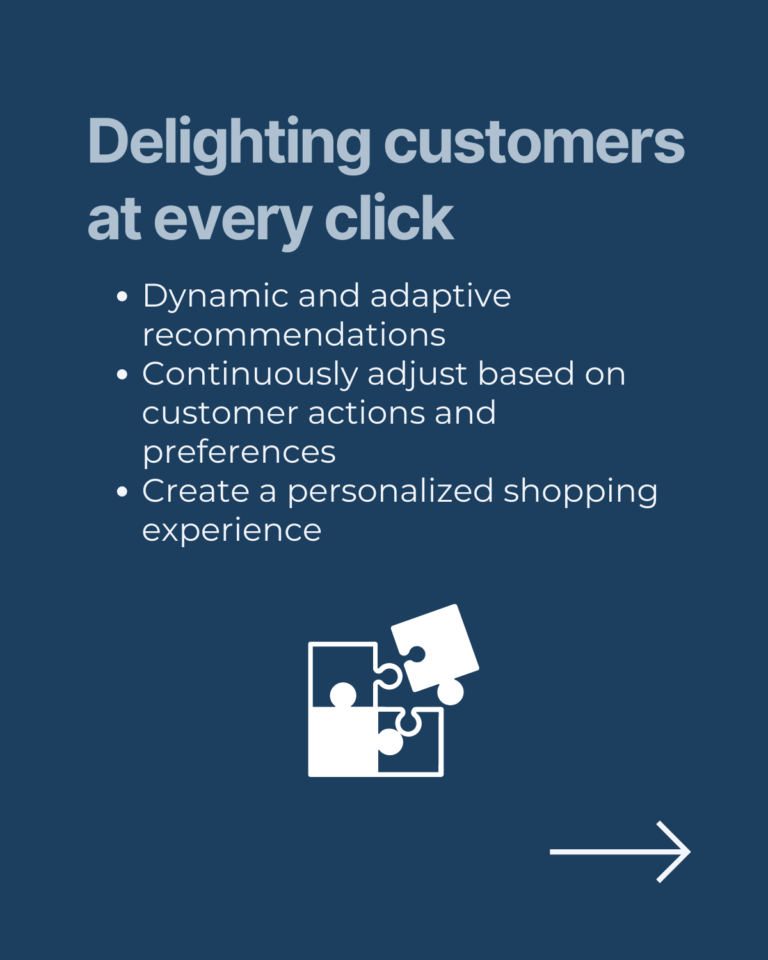
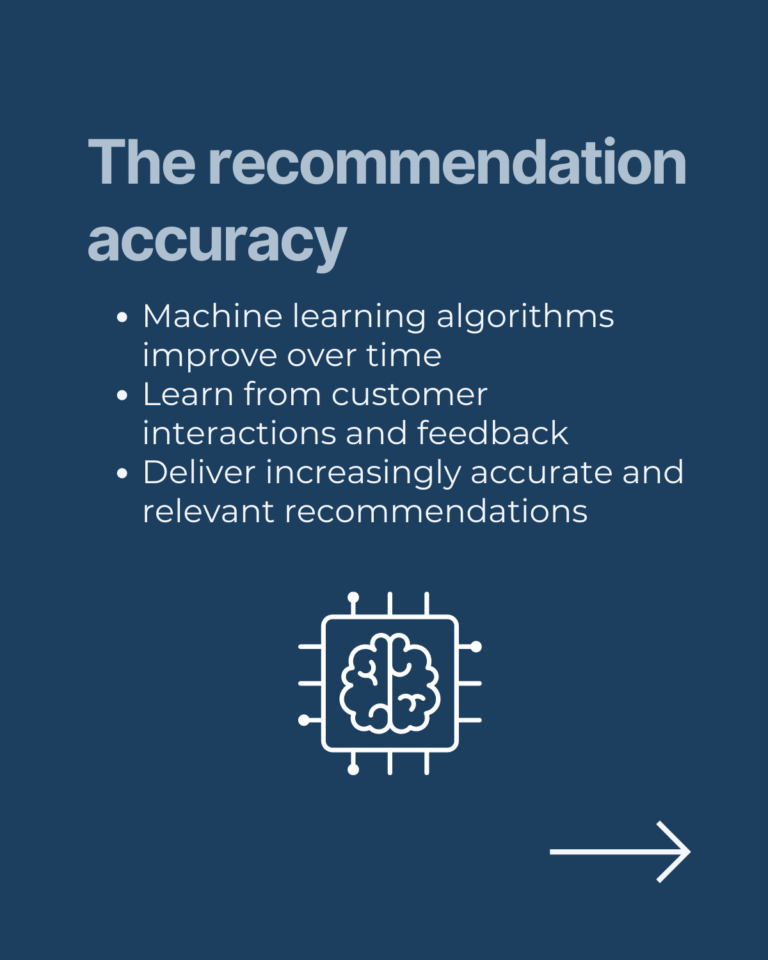
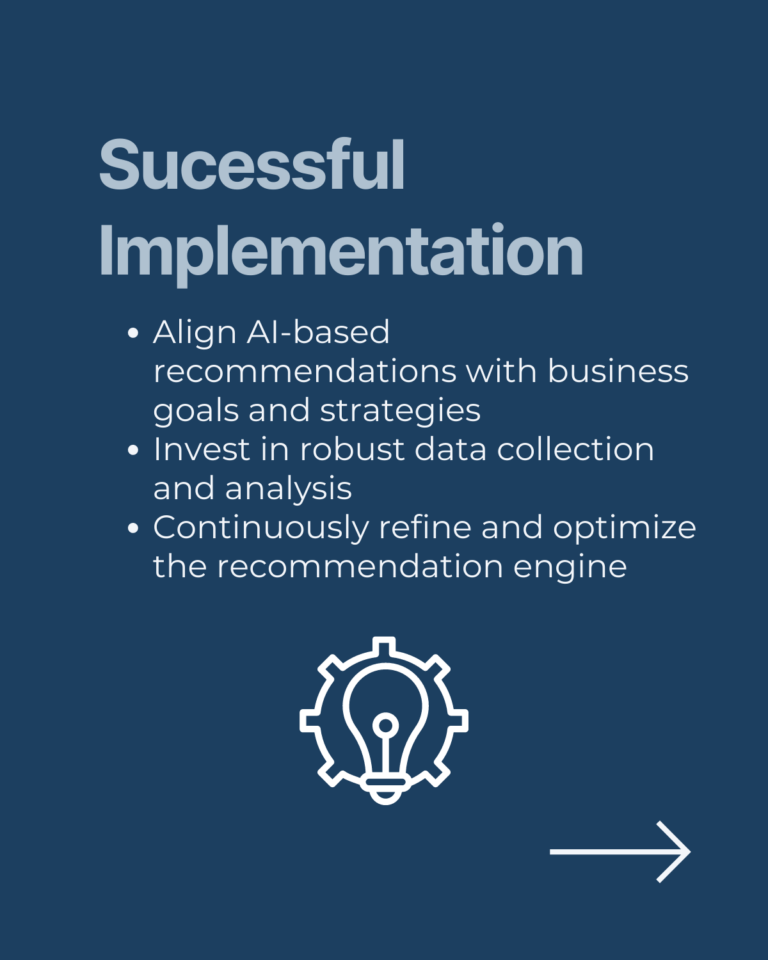

Improving Capabilities: The Personalized Recommendations Challenge
Delivering personalized recommendations is crucial for engaging customers and increasing conversion rates. However, manually curating personalized recommendations can be time-consuming and often falls short in terms of relevance. Here’s how AI can revolutionize personalized recommendations:
- Data-driven Insights: AI algorithms can analyze vast amounts of customer data, including purchase history, browsing behavior, demographics, and more. By processing this data, AI can uncover meaningful patterns and preferences, providing actionable insights to tailor recommendations to individual customers. This enables you to offer highly relevant product suggestions, increasing the likelihood of conversions.
- Real-time Personalization: AI enables dynamic, real-time personalization by continuously adapting recommendations based on customers’ actions and preferences. This allows for a highly personalized and engaging shopping experience, making customers feel understood and valued. Real-time personalization can significantly boost customer satisfaction, retention, and loyalty.
- Recommendation Accuracy: Machine learning algorithms can continuously learn and improve over time. As AI algorithms gather more data, they become increasingly accurate in predicting customer preferences and delivering recommendations that align with individual tastes. By consistently refining the recommendation engine, you can ensure a higher hit rate, leading to more successful cross-selling and upselling opportunities
Remember, AI is not a one-size-fits-all solution. Its implementation should align with your specific business goals and strategies. With the right expertise and a data-driven approach, you can leverage AI to revolutionize your ecommerce operations, deliver outstanding customer experiences, and thrive in the digital marketplace.
If you’re interested in learning more about our services or how we can help you optimise your e-commerce store, we offer a free consultation. Don’t hesitate to contact us.



